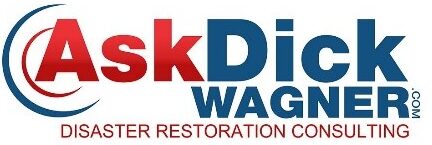
How Excessive Options Overwhelm Consumers
In a world characterized by rapid advancements and technological progress, the area of client choices has grown exponentially. This explosion of options, while seemingly beneficial, has sparked an intriguing debate within the field of social science. This discussion underscores the great notion that extreme choice can overpower and overwhelm clients, leading to decision fatigue, dissatisfaction, and even paralysis.
Social science research has consistently shown the paradox of choice, shedding light on how an abundance of options can hurt peoples’ well-being and decision-making processes.
One of the pivotal reasons why unnecessary choice overwhelms clients is rooted in the concept of decision fatigue. Social science studies have clarified that the human brain has a finite ability for making decisions. When confronted with an abundance of options, individuals are compelled to engage in an intricate decision-making process, consuming significant mental resources. As a result, decision fatigue sets in, making later choices less rational and more prone to errors. This fact not only affects the quality of decisions but also causes a sense of rational exhaustion, causing clients to retreat from making choices altogether.
Plus, the illusion of a best choice among a surplus of options often leads to heightened expectations and later disappointment. Science research has repeatedly proven that when confronted with a broad array of alternatives, individuals tend to predict finding the ‘perfect’ choice that aligns with all their preferences and needs.
However, reality rarely matches these high expectations, leading to frustration and a lasting sense of regret over the chosen option. This experience is worsened by the presence of information and reviews available online, which will increase doubts and undermine the confidence in a person’s decisions.
 Moreover, the psychological fact known as analysis paralysis comes to the forefront when individuals are presented with excessive choices. Social science scholars have seen that when faced with numerous options, individuals often struggle to evaluate each alternative’s pros and cons carefully. This hesitancy to commit to a decision can lead to procrastination, anxiety, and ultimately, a missed opportunity. The fear of making the ‘wrong’ choice becomes paralyzing, preventing clients from moving forward and experiencing the benefits of their chosen option.
Moreover, the psychological fact known as analysis paralysis comes to the forefront when individuals are presented with excessive choices. Social science scholars have seen that when faced with numerous options, individuals often struggle to evaluate each alternative’s pros and cons carefully. This hesitancy to commit to a decision can lead to procrastination, anxiety, and ultimately, a missed opportunity. The fear of making the ‘wrong’ choice becomes paralyzing, preventing clients from moving forward and experiencing the benefits of their chosen option.
The complex relationship between choice and well-being is a fascinating field of study. The absurdity of choice is a loud reminder that while variety is often perceived as beneficial, too many options can overwhelm clients.
The toll of decision exhaustion, the burden of unrealistic expectations, and the quicksand of analysis paralysis all contribute to the erosion of individuals’ well-being in the face of an irresistible choice landscape. As clients navigate a more complex market, it is important to recognize the inner toll that so many choices can take. It is suggested that you strive for a balance between variety and simplicity.
The insights gained from social science research emphasize the importance of offering only those options that are appropriate, with the aim of enhancing, rather than diminishing, clients’ overall satisfaction and quality of life.

By Dick Wagner, Co-Founder The CREST Network, LLC
Nationally recognized coach, consultant, trainer, and speaker
Creator of the renowned PREP™ pre-disaster program
Owner of AskDickWagner.com BLOG
Copyright© 2023 The CREST Network, LLC All Rights Reserved
No Part Of This Document May Be Reproduced In Any Form Without Written Permission
